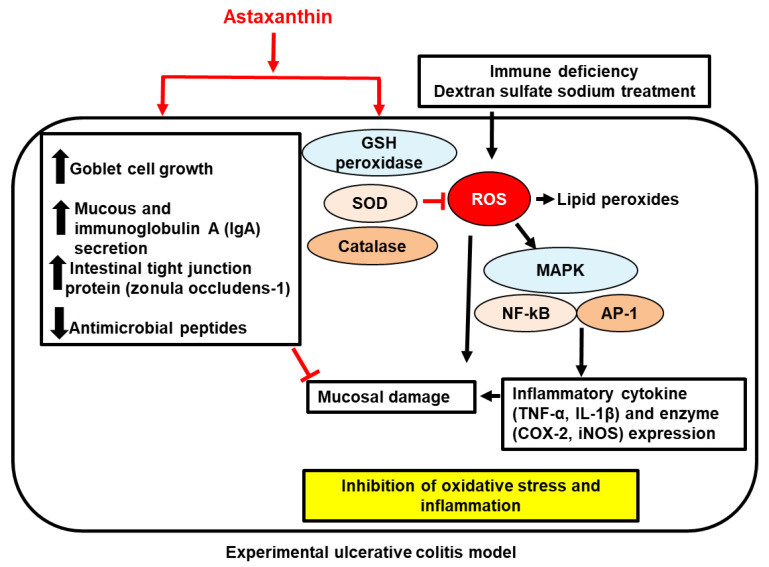Figure 3.
The proposed mechanism of astaxanthin-mediated protective effects on ulcerative colitis. In experimental ulcerative colitis model, induced by treatment of dextran sulfate sodium or immune deficiency, astaxanthin increased glutathione (GSH) peroxidase, superoxide dismutase (SOD), and catalase which decreases reactive oxygens species (ROS) and lipid peroxide production. Therefore, astaxanthin inhibits ROS-mediated activation of mitogen-activated protein kinases (MAPK), nuclear factor-κB (NF-κB), and activator protein 1 (AP-1) to induce expression of inflammatory cytokines such as tumor necrosis factor-α (TNF-α) and interleukin (IL)-1β, and inflammatory enzymes including cyclooxygenase-2 (COX-2) and inducible nitric oxide synthase (iNOS), which stimulates mucosal damage. Thus, astaxanthin inhibits oxidative stress-mediated inflammation. Moreover, astaxanthin stimulates goblet cells growth and secretion of mucous and immunoglobulin A (IgA), and expression of zonula occludens-1 which is intestinal tight junction protein; however, it reduces anti-microbial peptides. Overall, astaxanthin ameliorates intestinal mucosal damage. Inhibit,  ; increase,
; increase,  ; decrease,
; decrease,  . Red arrows represent the effects of astaxanthin.
. Red arrows represent the effects of astaxanthin.

